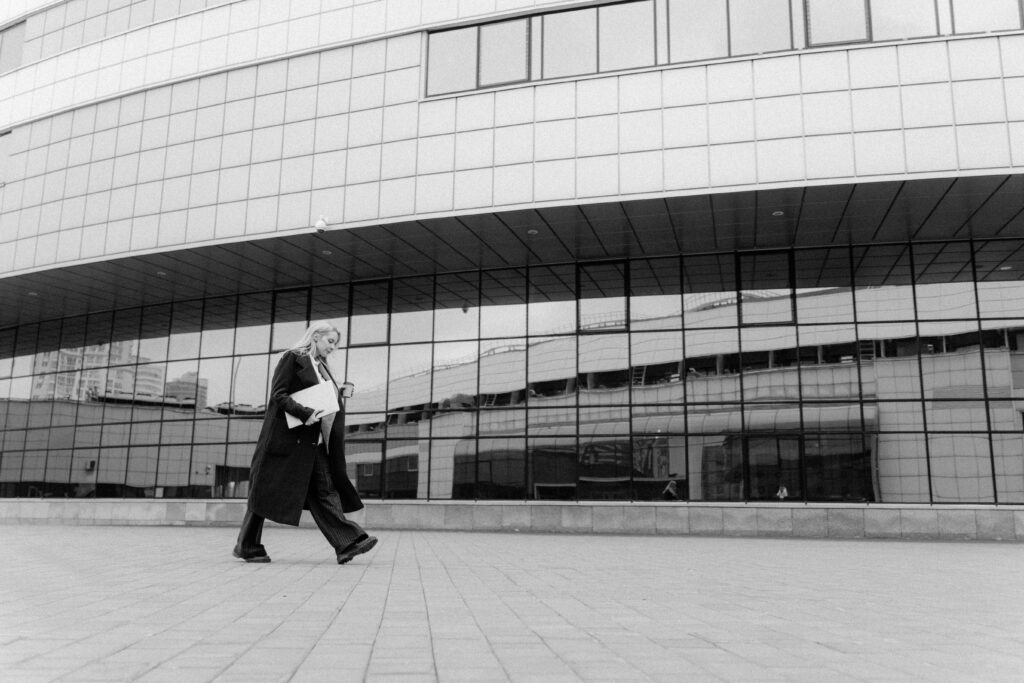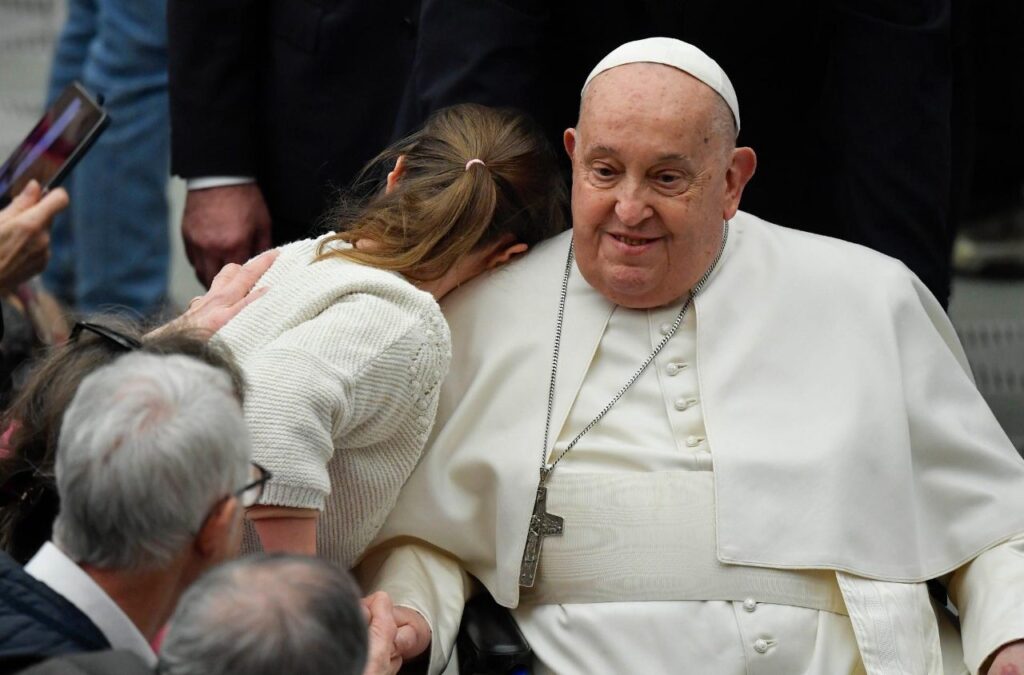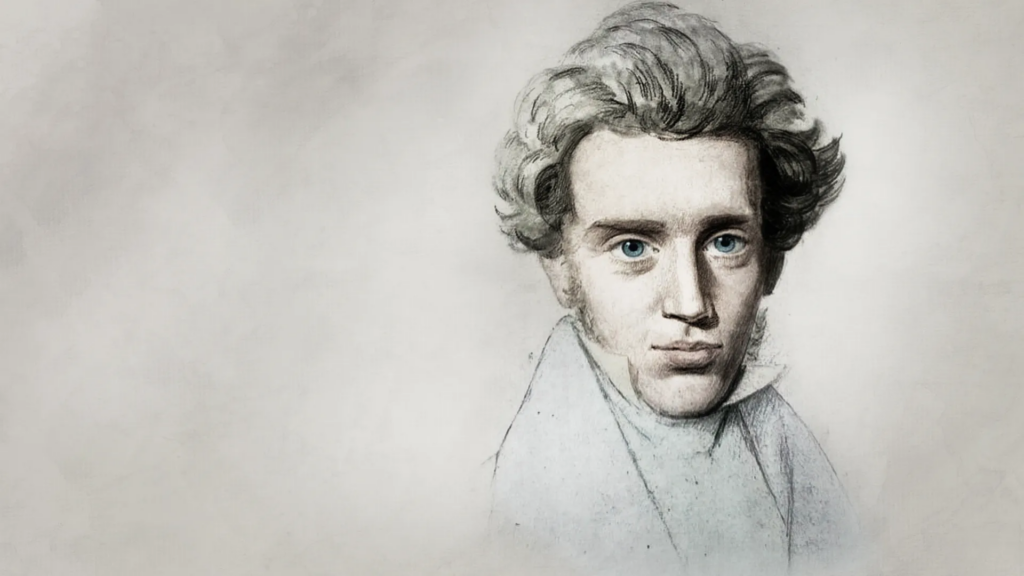Divine Mercy, the Small and the Great
What do you prefer, the small or the great?

Listen to me, Thérèse of Lisieux, lend your ear and answer me: What do you prefer, the small or the great?
Teresa: I like everything small.
But, Thérèse, how do you say this to me? But don’t you realize that great is enormous, elevated, strong, abundant, mature, weighty, fantastic, phenomenal, formidable, unparalleled, superlative. The small, on the other hand, is just a little thing. Don’t you realize? The small is minuscule, small, tiny, dwarfish, brief, weak, light, slight, scarce, insufficient, exiguous. Einstein, with his theory of relativity, could tell you that being small is like being reduced, diminished, rickety, microscopic, tiny, insignificant, priceless. Great is to small what a man of great personality is to a baby, and the latter, moreover, doesn’t even have the capacity to speak. Great is to small what a nimble and strong white steed is to a lame little tortoise. Great is to small what a man who possesses all knowledge, and possesses it to the highest degree, is to a small and simple child.
In a word, great is “what is more.” Small is “what is less.”
So, Teresa, what do you say: have you thought about it? What do you prefer: small, what is less, or great, what is more? A baby or a wise man?
Thérèse of Lisieux: I like everything small.
And you, exemplary priest Jaime Balmes, who lived in an age of revolutions, what do you prefer: small or great?
Jaime Balmes: When I see the cataclysms that are falling upon today’s society, and I also see a little one, I say to the child: you are poetry! And then I understand that in society, even in such calamitous times, there must be much poetry.
And you, Saint Josemaría, do you prefer the small or the large?
By making myself small, I can enter the arms of my mother, Saint Mary.
Small things, then, are valued.
Small things allow for a merciful gaze. Remember that mother who, with her friends, watched her son poking and prodding and investigating the inside of his little nose. All the friends commented: what a rude, dirty child! But the mother simply said: this son of mine, in time, could be a researcher!
Saint Peter, what do you prefer, the large or the small?
Saint Peter: My divine Master, being of infinite greatness, since He was true God, made Himself small. This smallness is a most beautiful and sublime language of love, sung at every Christmas. My adorable Redeemer humbled Himself so much, made Himself so small, that He went so far as to die majestically on the bloody cross to save humanity. This smallness is the most eloquent expression of love.
I know that Our Lord, even if only one man had existed, and this man had been a terrible criminal, would have given His blood for him. He, the Lord of heaven and earth, placed His love in human smallness. Thus, on the cross, He lived out the saying of Saint Francis de Sales: if you tear out one of my eyes, I still have the other to look at you with love, and if you tear out both, I still have the heart to love you. Such was His gaze, the gaze of His merciful love, the gaze of His heart, upon human spiritual misery.
You have already seen that mother: the added smallness of her child’s wounds, the ruptures of a miniature, the rips in her fabric, have been a magnet, attracting and urging upon them her affectionate kisses of a tender mother.
The worst smallness is the misery of sin. But when the prodigal son returned, whose sins had so wounded his father’s heart, what he saw in his son was his smallness: his misery, both material and spiritual. He responded to this smallness by showering him with kisses. His father’s heart knew only love. He loved his prodigal son viscerally. Thus, the flame of his father’s heart ignited in misery. His ardent fatherly affection touched his son’s heart. Why was his father’s heart moved by mercy? Because, as the great Saint Augustine says, the son was powerless because of the misery he suffered. God is moved, says Saint Therese, by a fallen child (a child who has hurt himself). He is moved because this is a little child whom He created out of nothing.
Every sinner, no matter how sinful, who is truly repentant, knows what awaits him. That is, that the Lord will shower him with kisses.
The misery of sin never exists alone. Along with misery, there is also, at the same time, divine mercy, the infinite love of God. There is a binomial: misery and mercy. But this is always an invitation to conversion, because the sinner knows that God wants to receive and embrace him.
The strength of the spirited steed, that is, the strength of a man endowed with all intellectual powers, with all strength, with all successes, with all human powers, can only achieve what poor human power can. But tenderness can do much more. Mercy is capable of reaching much further. Power is, at its core, only the impotence of power. While mercy—placing the heart in misery—is the power of impotence. In short, mercy is much more powerful than power. In the designs of divine mercy, there is a wisdom far greater than that of philosophers. Saint Therese understood more than many exalted philosophers.
But this, compared to the current criteria of many people, is a revolution. It is the fall of so many exalted criteria in vogue, and, at the same time, the rise to the summit of criteria that so many had banished and buried. Yes, it is a revolution, but a non-violent revolution, but a peaceful one, entirely of love and kindness. But, ultimately, it is a true revolution, a great change in society.
Benedict XVI: it is the revolution of love.
Francis: it is the revolution of tenderness.
Related

Reversing Social Deterioration: A Task That Begins in Business Management
Alejandro Fontana
25 April, 2025
4 min

The Revolution of Tenderness
María Elizabeth de los Ríos
25 April, 2025
3 min

His Hope Does Not Die!
Mario J. Paredes
24 April, 2025
6 min

The Religious Writer with a Fighting Heart
Francisco Bobadilla
24 April, 2025
4 min
 (EN)
(EN)
 (ES)
(ES)
 (IT)
(IT)

